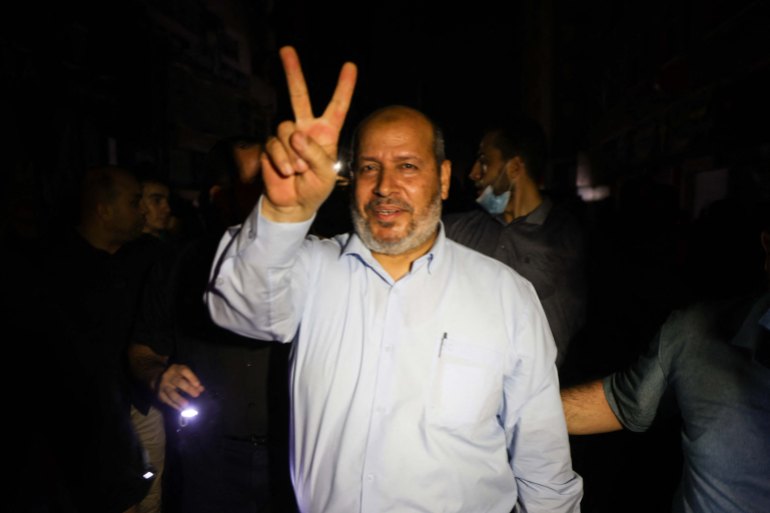The Israeli occupation police decided not to allow extremist right-wing organizations to hold what they called the "flags march" that was scheduled for next Thursday in occupied Jerusalem, while the Islamic Resistance Movement (Hamas) warned that there are no red lines for the battle if it reaches Jerusalem.
This decision came at the conclusion of a meeting in which a number of those responsible for organizing the march participated.
The police justified their decision by what they described as security threats.
In the first reaction, the leader of the Religious Zionism party Bezalel Smotrich described the police's decision as acquiescence and surrender to what he called terrorism and the threats of Hamas.
Smotrich said that the Inspector General of the Israeli Police is unable to secure a march in Jerusalem in which the flags of Israel are raised, adding that, by doing so, he "transforms the head of Hamas in Gaza Yahya Sinwar into a director of Jerusalem affairs."
From the march of flags in Jerusalem on the anniversary of the occupation of the two parts of the city (Al-Jazeera)
Surrender and retreat
In turn, Itamar Ben Gvir, a member of the Israeli parliament (Knesset), said, "Unfortunately, the Police Commissioner continues the line of surrender and retreat in the face of terrorism."
Ben Gvir, a settler who lives in a settlement near Hebron in the occupied West Bank, added, "I do not intend to surrender, and next Thursday I will walk the full route around the Old City of Jerusalem."
The far-right - who heads the "Jewish Power" party - called on members of the Knesset to join him and "use their immunity as members of Knesset and the sovereign law of the State of Israel over Jerusalem."
In response to these comments, Kobi Shabtai - Israel Police Commissioner - accused Ben Gvir of leading a "Jewish uprising" that contributed to fueling tension, according to Israeli television.
Hamas warns
In contrast to this campaign, Khalil al-Hayya, a member of the Hamas Political Bureau, warned the Israeli occupation and mediators against the approach of the flags’ march to Jerusalem and Al-Aqsa Mosque, saying - at a press conference in Gaza - that when the battle reaches Jerusalem, there are no red lines.
Al-Hayya added, "I hope that this message will be clear so that Thursday will not be the same as it was on May 11," referring to the beginning of the latest Israeli aggression.
Hayya: We are not lovers of wars and blood, but we are lovers of stability and want to live in safety (French)
The deputy head of Hamas said, "The resistance hit some of its missiles. We are the ones who decide to restrain, starting with the cry and warning and ending with what you know," adding that "the enemy is trying, in the face of the (Israeli) policy difference, to embody new facts, and today it is announcing a march." New flags.
Al-Hayya addressed Israel, saying, "We say to the occupation, it will not succeed, and we will not accept that we pay two prices, the price of your aggression and the price of your political difference."
And he sent a message to the truce mediators, saying, "We are able to make the decision, and if you come back, we are not lovers of wars and blood, but we are lovers of stability who want to live in safety."
previous cancellation
The Israeli police announced - on the tenth of last May - the cancellation of the march in the wake of the confrontations that took place due to the threat to evacuate Palestinian families from the Sheikh Jarrah neighborhood in favor of settlement associations.
The march is known as the Flags March to celebrate Israel’s declaring Jerusalem as its unified capital following its occupation and annexation in 1967. Thousands participate in it and reach occupied Jerusalem and pass along and within the walls of the old city, the main market and the Islamic neighborhood within it.
The daily protests that took place in Sheikh Jarrah neighborhood about two months ago expanded against the backdrop of the threat to expel Palestinian families from their homes to different parts of Jerusalem, especially in Al-Aqsa Mosque during the month of Ramadan.
The case led to a bloody escalation with the Gaza Strip that lasted for 11 days and led to the death of 260 Palestinians, including 66 children, and massive destruction in the besieged strip.

